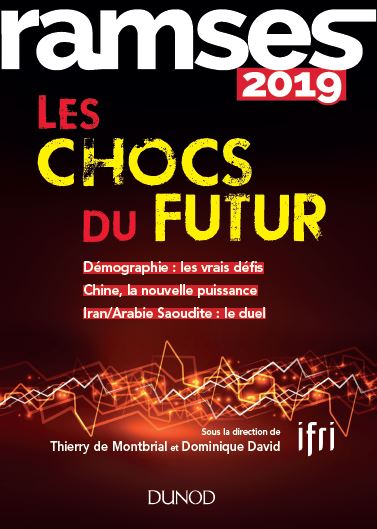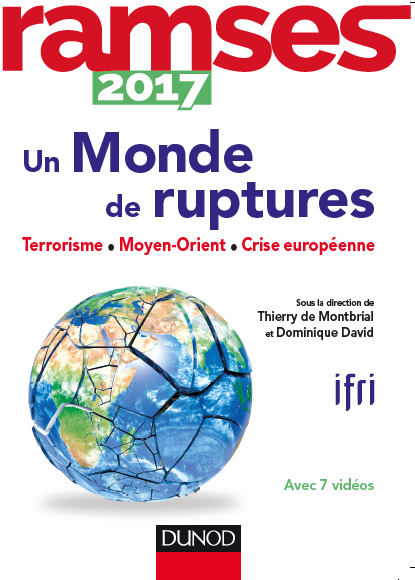
Transitions from War to Peace
How do we get out of wars? One hundred years after 1918, Politique étrangère’s special report takes up this question from different perspectives in relation to the conflicts in which Western armies, willingly or otherwise, are embroiled.

RAMSES 2019. The Clashes of the Future
RAMSES 2019. The Clashes of the Future, written by Ifri's research team and external experts, offers an in-depth and up-to-date analysis of global geopolitics.
Navigating the Storm: ‘OPEC+’ Producers Facing Lower Oil Prices
On 22 June 2018, “OPEC+” oil Ministers (Organisation of Petroleum Exporting Countries members and an ad hoc alliance with several non-OPEC producers, notably with Russia, Kazakhstan and Azerbaijan) will gather in Vienna to discuss the status and future of their production limitation agreement which was initiated in November 2016 and runs until the end of December 2018.

The Arctic: a Strategic Exploration
Two strategic regions are at the focus of this back-to-school issue of Politique étrangère.

RAMSES 2017. A Fragmented World
RAMSES 2017. A Fragmented World, prepared by IFRI’s research team and selected external experts, offers an in-depth and up to date analysis of global geopolitics.
This 35th edition focuses on three key issues: the spread of jihadist terrorism, the Middle East’s disintegration, and doubts about the European project. With the world’s balance of power and economic foundations shifting, the next few months are likely to be decisive for our future. The growing diversity and complexity of our world is startling, which is why it is important to rethink our analyses and means of action.

Middle East, the new "Great Game"
Will a divided Middle East become the center of a new “Great Game”? The world’s global powers are aligned in it: the United States, falsely tempted by retraction; Russia, establishing its position in an unexpected state of play, France, destabilized by the contradictions of its own policy… In addition are tussles for regional hegemony between Iran, Turkey, and Saudi Arabia.
The Saudi Electricity Sector: Pressing Issues and Challenges
With 266 billion barrels of proved oil reserves (16% of world total), Saudi Arabia holds the world's largest (conventional) crude oil reserves, was the largest exporter of total petroleum liquids in 2013, and the second largest petroleum liquids producer behind the United States[1].
The Gulf Countries' Energy Strategies: What's on the Menu for the Power Sector?
The futuristic green city of Masdar in the United Arab Emirates or the latest announcements of Saudi Arabia which might now well become the new Eldorado for solar energy companies have a clear marketing varnish. But if they are showcases of green ambitions, they nonetheless reflect the situation the Gulf States face today driven by the development of heavy industry and petrochemicals but first and foremost by the rapid population growth (around 2% for Saudi Arabia and 3% for Kuwait; Qatar and the Emirates have higher population growth rate due to immigrants).
Support independent French research
Ifri, a foundation recognized as being of public utility, relies largely on private donors – companies and individuals – to guarantee its sustainability and intellectual independence. Through their funding, donors help maintain the Institute's position among the world's leading think tanks. By benefiting from an internationally recognized network and expertise, donors refine their understanding of geopolitical risk and its consequences on global politics and the economy. In 2024, Ifri will support more than 70 French and foreign companies and organizations.












